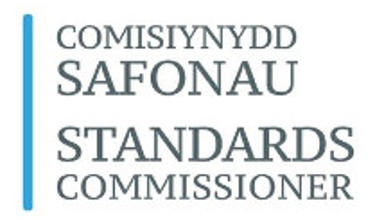- Last updated: 5 May 2021 (to reflect change of name)
- Owner: Committee responsible for Standards of Conduct
- Contact: Clerk to the Committee responsible for Standards of Conduct
- PDF Files
This page is part of a series including the Code of Conduct for Members of the Senedd and all Associated Rules and Guidance.
chevron_right
1. This guidance is intended to supplement and complement the requirements of the Senedd's Code of Conduct on the Standards of Conduct for Members of the Senedd.
2. A Member of the Senedd should not, in relation to contact with any person or organisation who lobbies, do anything which contravenes the Senedd's Code of Conduct on the Standards of Conduct for Members of the Senedd, or any other relevant rule or resolution of the Senedd or any statutory provision.
3. A Member should not, in relation to contact with any person or organisation who lobbies, act in any way which could bring the Senedd, or its Members generally, into disrepute.
4. The public must be assured that no person or organisation will gain better access to, or treatment by, any Member as a result of employing a professional lobbyist either as a representative or to provide strategic advice. In particular, a Member should not offer or accord preferential access or treatment to professional lobbyists or their employers. Nor should professional lobbyists or their employers be given to understand that preferential access or treatment might be forthcoming from another Member of the Senedd or group or person within, or connected with the Senedd.
5. Before taking any action as a result of being lobbied, a Member should be satisfied about the identity of the person or organisation who is lobbying and the motive for lobbying. A Member of the Senedd may choose to act in response to a professional lobbyist but it is important that the Member knows the basis on which the Member is being lobbied in order to ensure that any action the Member takes complies with the standards set out in the Code of Conduct for Members of the Senedd.
6. There is currently no voluntary or statutory scheme for registering professional lobbyists operating in Wales. Before agreeing to meet with a person or organisation that the Member believes may be a professional lobbyist, the Member may wish to find out whether the lobbyist is a member of a professional body registering information about who its members represent, and which has a professional code of conduct for its members. This would include public affairs bodies such as Public Affairs Cymru (PAC) and the Association of Professional Political Consultants (APPC). If the lobbyist is not a member of such a professional body, the Member must decide whether or not to meet with that individual. [For the purposes of this guidance, a 'professional lobbyist' would include 'all those who undertake lobbying activity, i.e. activity aimed at seeking to influence Members, on a professional basis and in a paid role'. This includes in-house lobbyists, charities, trades associations and other organisations that employ staff to undertake lobbying activity, individual lobbyists, as well as consultancies and agencies that either lobby directly on behalf of clients or advise their clients on undertaking lobbying activity].
7. In addition, Members should consider taking one or more of the following steps:
- keeping a record of all meetings with persons considered to be undertaking lobbying activity;
- requiring the person undertaking the lobbying activity to make a record of the meeting, and provide for the Member to have access to that record at any future time should it be called for, before agreeing to meet with them; and
- arranging for a member of their support staff to take notes at any meetings with persons considered to be undertaking lobbying activity.
8. The Code of Conduct on the Standards of Conduct for Members of the Senedd sets out the standards expected in relation to acceptance of hospitality, gifts and benefits. In addition to this and the statutory provisions in the Government of Wales Act 2006, Members:
- should not accept any paid work which would involve them lobbying on behalf of any person or organisation or any clients of a person or organisation;
- should not accept any paid work to provide services as a parliamentary strategist, adviser or consultant, for example advising on Senedd affairs or on how to influence the Senedd and its Members. (This does not prevent a Member from being remunerated for activity which may arise because of, or in relation to, membership of the Senedd, such as journalism or broadcasting, involving political comment or involvement in representative or presentational work, such as participation in delegations, conferences or other events); and
- should decline all but the most insignificant or incidental hospitality, benefit or gift if the Member is aware that it is offered by a professional lobbyist. Standards of personal conduct and general principles of conduct identified by the Committee on Standards in Public Life are set out in the Code of Conduct on Standards of Conduct for Members of the Senedd. These include the requirement that a Member should "never accept any financial inducement as an incentive or reward for exercising parliamentary influence", the "no paid advocacy" rule, and "not to place themselves under any financial or other obligation to outside individuals or organisations that might influence them in the performance of their official duties." Since the basis on which many people believe that professional lobbyists sell their services is by claiming to provide clients with influence over decision-makers, it might reasonably be thought that acceptance of a benefit of any significance from such a source could influence a Member's judgement in carrying out their official duties. (If a Member only becomes aware of its source after receiving hospitality, a benefit or gift, then the Member should consider reimbursing the costs of any hospitality or benefit or returning any gift.)
9. Members may participate in events for which others are charged a fee to attend. Participation, for example, in a conference or seminar for which delegates are charged a fee may be a useful means of a Member gathering a range of views on a topic. There could be some concern, however, that events falling into this category could be a means of 'buying' access to Members of the Senedd. It is important that there should be no grounds for such a perception. No preferential treatment should, therefore, be offered or accorded any person or organisation as a result of having made initial contact with a Member of the Senedd at such an event.
10. Members should not participate in any event if they are aware, or become aware, that the organisers are promoting the event on the basis that those paying to attend the event are "buying" influence over Members of the Senedd or that they can expect to receive better subsequent access to, or treatment by Members, than would be accorded to any other person or organisation.
11. When agreeing to sponsor the hosting of any event, meeting or exhibition on the Senedd estate, Members must at all times comply with the requirements of both the Senedd Events Guidelines and the Terms and Conditions for events, which are sent to event organisers and copied to the sponsoring Member. The sponsoring Member or their representative must attend the event, exhibition or meeting, and responsibility for the event rests with the Member who is sponsoring the booking.
12. Members should ensure that staff working for them are aware of and apply these rules and guidelines when acting on a Member's behalf or in any connection with the Senedd.
Guidance agreed by Assembly resolution on 26 June 2013.



